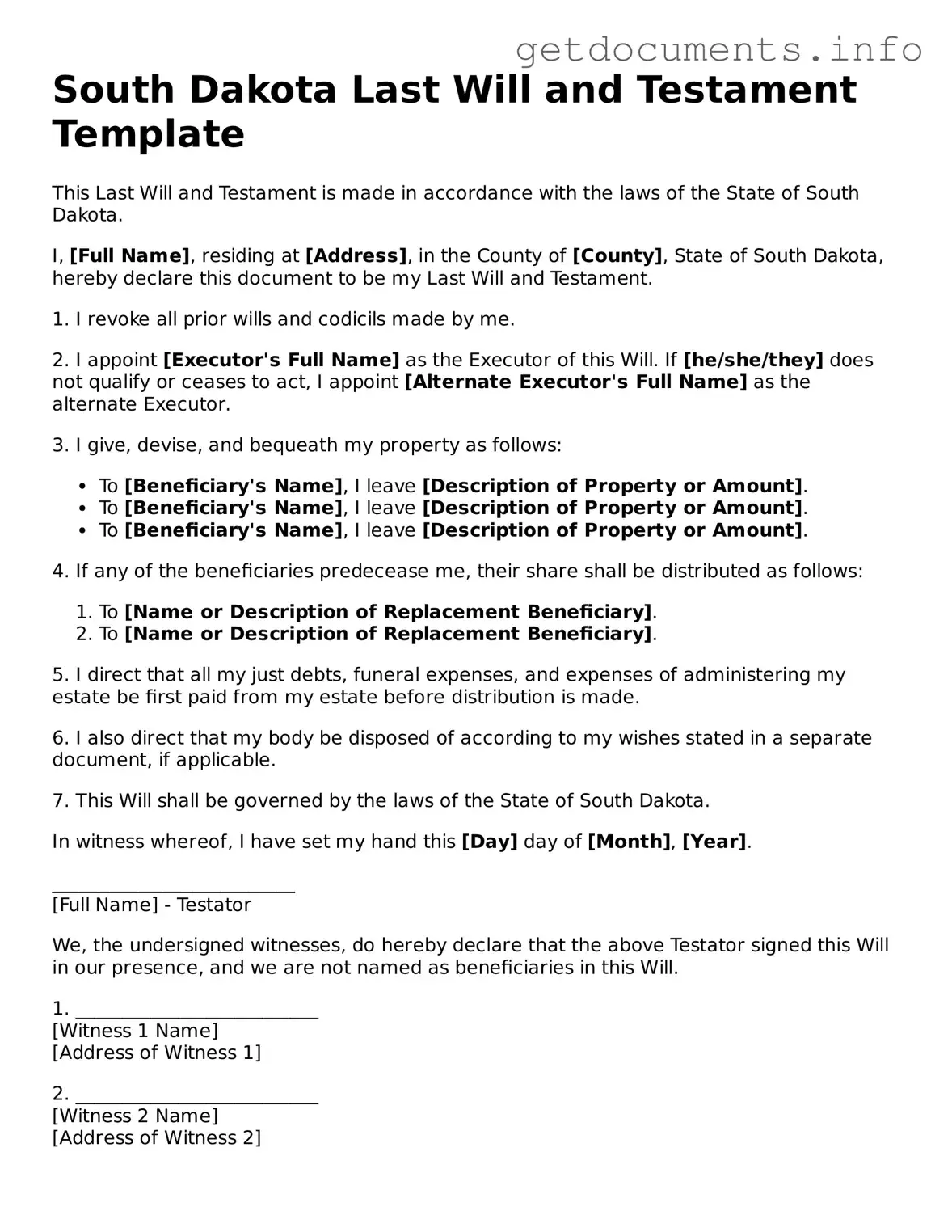Free Last Will and Testament Template for South Dakota
A South Dakota Last Will and Testament form is a legal document that outlines how an individual's assets and affairs will be handled after their passing. This form ensures that your wishes are honored and provides clarity to your loved ones during a difficult time. By creating a will, you can designate beneficiaries, appoint guardians for minor children, and specify your funeral arrangements.
Take the first step in securing your legacy by filling out the form below.
Access Last Will and Testament Editor

Free Last Will and Testament Template for South Dakota
Access Last Will and Testament Editor
Got places to be? Complete the form fast
Fill out Last Will and Testament online and avoid printing or scanning.
Access Last Will and Testament Editor
or
⇩ PDF File
